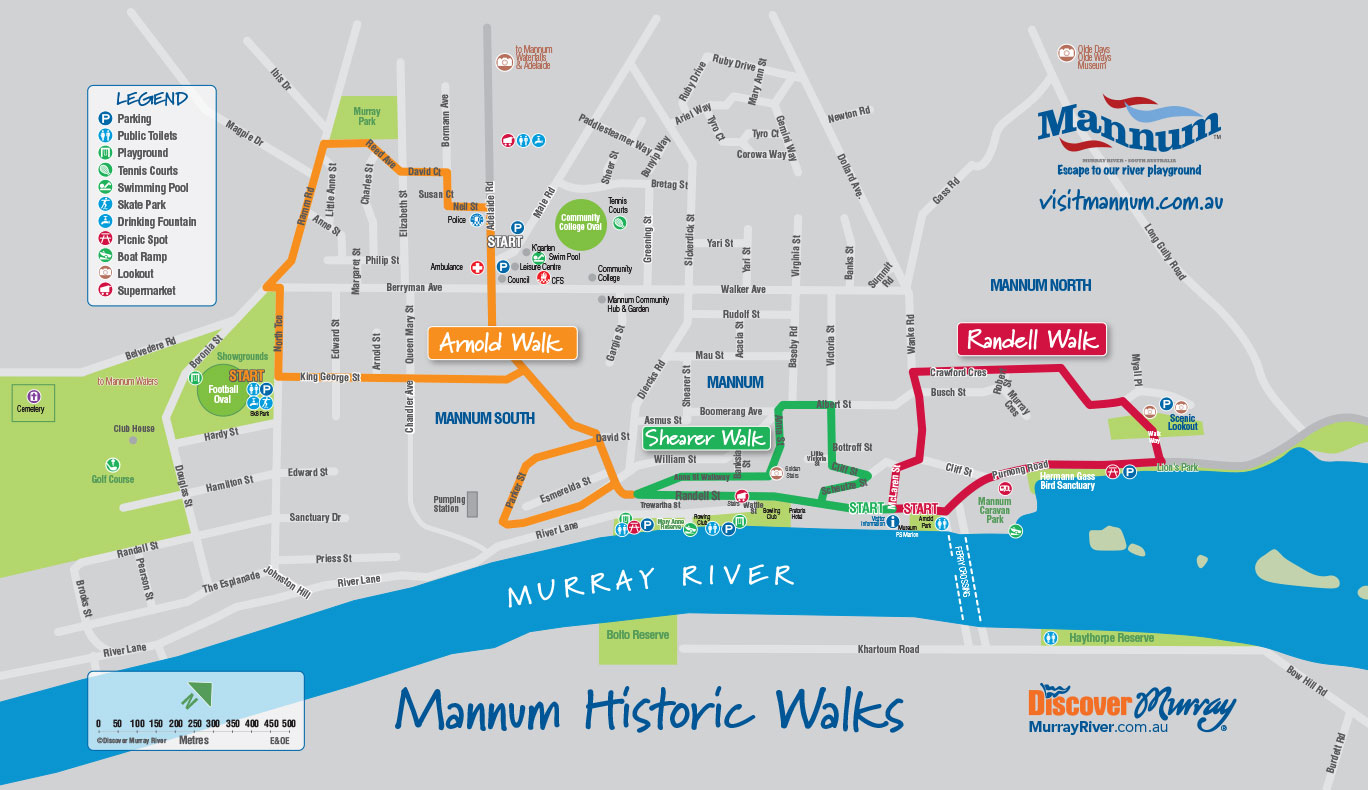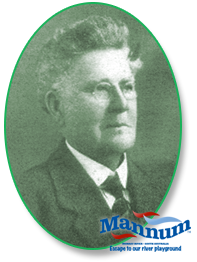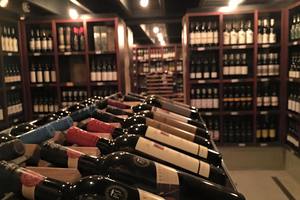
The Shearer Walk
Mannum Walks

Duration: 40 minutes to an hour
Grade: Average – some slopes
 Brothers David and John Shearer were invited to come to Mannum by farmers in the area. They began their business in a small blacksmith’s shop at the top of Randell Street, moving once more before opening a factory opposite the now bowling club. Their innovative machinery revolutionised farming. They listened to the farmers and responded to their needs. Later, John moved to Adelaide, while David stayed in Mannum. David built an early steam car in the late 1800s exhibiting it in Adelaide, and frightening the local horses when he went for a spin at 15 miles per hour. Horwood and Bagshaw took over Shearers later factory on Adelaide Road in 1972.
Brothers David and John Shearer were invited to come to Mannum by farmers in the area. They began their business in a small blacksmith’s shop at the top of Randell Street, moving once more before opening a factory opposite the now bowling club. Their innovative machinery revolutionised farming. They listened to the farmers and responded to their needs. Later, John moved to Adelaide, while David stayed in Mannum. David built an early steam car in the late 1800s exhibiting it in Adelaide, and frightening the local horses when he went for a spin at 15 miles per hour. Horwood and Bagshaw took over Shearers later factory on Adelaide Road in 1972.
- Start: Mannum Visitor Information Centre, Randell Street.
- Cross the street to the Woolshed. Staying on Randell Street, cross McLaren Street to the store on the corner. This was the first store in Mannum, run by Thomas Randell (whose small white house can be seen at the top of McLaren Street). Tom ran this store with his family an also had another store in Forster (Walkers Flat).
- Continue to the Bottle Shop. Note the barred windows on it’s northern side. This is the site of the first ‘jail’ in Mannum, preceding the building of a police station. Legend has it a man was chained to the floor inside. Behind this building is also the ruin of W.R. Randell’s first four room cottage. The Mannum Hotel, originally named the ‘Bogan’, was built in 1869 incorporating an earlier hotel recorded in 1866. A photograph taken in 1877 shows the building of the second storey and verandah.
- Walk along Randell Street. Observe the historical plaques which are displayed on many of the buildings. Fortunately Mannum retains much of the Main Street as it was a century ago. One of the many interesting buildings is the Institute. Instigated by the town’s leaders in 1880, it was opened in 1882 and extended in 1911. It has been used as a Council Chambers, a court, a film and picture theatre and for many other activities over the years.
- Pass the site of the Shearer Factory now a car park, and continue until you turn right into the Anna Street Walkway. Enjoy the view of the main street and the Mary Anne Reserve, noting the cairns and the rotunda. In earlier years, the reserve boasted a swimming pool, a wading pool an a diving towner. Across the river, the dairy farming flats, and highlands can be seen. River levels rise and fall frequently, but in 1956 much of the town was under water.
- Continue to the small lookout above the Shearer factory site, turn left and walk up the hill. The large white house on your right was the Shearer residence. It still boasts the remains of ay observatory.
- Continue up the lane to William Street. Turn right and enter Albert Street. You may need to cross the road to find a safe pathway.
- Turn right into Victoria Street.
- Continue walking until Victoria Street bends into Cliff Street. Notice the old school building.
- Walk down Cliff Street and turn right into Schuetze Street. At this junction you can see the foundations of William Randell’s first four roomed cottage behind the hotel. Schuetze Street takes you past many old cottages on your right. and the rear of the old bakery as your enter Randell Street.
- Turn left and continue back to the Visitor Information Centre. You may wish to cross the road to see the buildings on that side. Points of interest include the Butter Factory, reminding us of the dairy industry across the river, and the Pretoria Hotel, the name of which is associated with the Boer War. The ‘P.S. Nellie’, built in 1882 and used as a travelling store by Captain Crane, used a wharf built on the riverside nearby. She was purchased by Arnold in 1919 and destroyed by fire together with the ‘Ellen’ at Morgan in 1930. As you return to the Visitor Information Centre, take special note of the building which was originally Walker’s Flour Mill. Benjamin Walker built it from 1874-6 and equipped it with machinery brought from the Waymouth Street Mills in Adelaide for 600 pounds. That machinery was originally steam driven. Ben’s son John was in charge of this mill. It closed in 1978.












